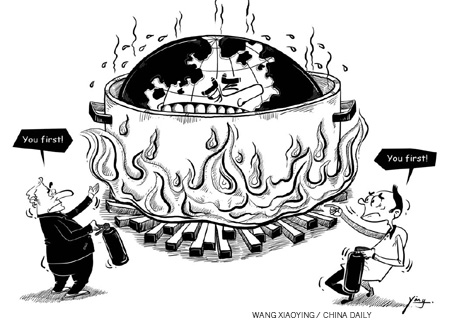Will change come to Cancun?

Cancun is in the news again. Seven years ago, this coastal city in eastern Mexico was the venue for the 5th ministerial meeting of the World Trade Organization (WTO). Now, it is hosting the United Nations Conference on Climate Change.
The similarity in backdrops between the two occasions is striking. The WTO ministerial meeting in 2003 followed the ministerial meeting in Doha in 2001. The Doha ministerial meeting had adopted the Doha Development Agenda (DDA), which attempted to make developing countries bigger players in global trade. World trade dynamics were never the same again with the North-South divide surfacing sharply over several issues leading to almost negligible progress on the agenda.
The Cancun ministerial meeting brought out the divide in world trade in the open with daggers sharply drawn. Though one does not know the fate of Cancun this time, like in 2003, it is convening after the tumultuous conference on climate change in Copenhagen in 2009.
The climate conference is expected to see the North and South clash over several issues, particularly the quantum of emission reduction. Developing countries have taken most by surprise by implementing large-scale emission reduction programs. China has led the efforts, followed by Brazil, India and Indonesia. On the other hand, major emitters in the developed world, the United States, Canada and Australia, for example, are yet to announce similar targets.
China's role in this regard has been similar to what it has been playing in the WTO. China's annexation to the WTO was announced at the Doha ministerial meeting in November 2001. Its entry was accompanied by unprecedented commitments to cutting tariffs and non-tariff barriers. The particularly noticeable commitments were the deep cuts in agricultural tariffs and the transitional safeguards to other developing countries for responding to sudden spurts in Chinese exports.
 0
0 







Go to Forum >>0 Comments